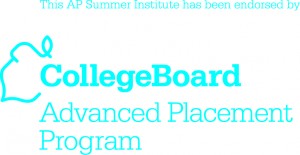New Data Raises Questions About Advanced Placement Courses

William and Mary School of Education
New Advanced Placement data suggests little benefit for student taking Advanced Placement courses who can't pass the final exam.
Students failed nearly 1.3 million Advanced Placement exams last year, according to an analysis by Politico. And the overall passage rate for the exams has declined since 2002.
In addition, The College Board, the nonprofit which administers the Advanced Placement exams, said research no longer supports the idea that students benefit just by taking the more difficult classes. Instead, research now shows students only benefit if they earn a passing score of 3 or higher on the exam.
Florida is among the states pushing more students to take accelerated coursework such as Advanced Placement or International Baccalaureate. The state grading formula for high schools gives credit for the percentage of students taking an AP or other accelerated course.
UPDATE: Low-income Florida students have been more successful, with nearly 28 percent passing at least one AP exam in 2012. Just 7 percent passed an exam in 2003.
Here’s the key graphs from the Politico story:
The trend challenges a widespread philosophy that students exposed to higher standards will find a way to meet them. Graded in part by college professors, AP exams provide a fairly objective measure of performance — and the results suggest that when the bar is raised too high, a good number of students trip.
“Well-meaning policy makers encourage Advanced Placement in order to set high expectations,” said Kristin Klopfenstein, an education professor who has studied AP trends and now runs the Education Innovation Institute at the University of Northern Colorado. “But their eagerness for expansion has gotten ahead of the support systems in place for these kids.”
New education standards fully adopted by Florida and 44 other states, known as Common Core, are based on similar thinking.
But Common Core critics argue the standards may ask too much of students, particularly in elementary school.
The exams are also expensive. The federal government has spent $275 million in the past five years to subsidize the $89 Advanced Placement end-of-course exam fee for low-income students.
